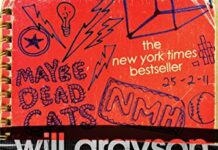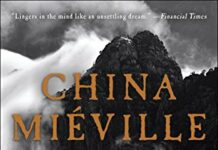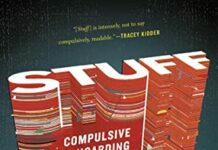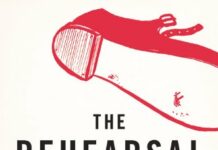
Ebook Info
- Published:
- Number of pages:
- Format: Epub
- File Size: 2.14 MB
- Authors: China Miéville
Description
With this outrageous new novel, China Miéville has written one of the strangest, funniest, and flat-out scariest books you will read this—or any other—year. The London that comes to life in Kraken is a weird metropolis awash in secret currents of myth and magic, where criminals, police, cultists, and wizards are locked in a war to bring about—or prevent—the End of All Things.In the Darwin Centre at London’s Natural History Museum, Billy Harrow, a cephalopod specialist, is conducting a tour whose climax is meant to be the Centre’s prize specimen of a rare Architeuthis dux—better known as the Giant Squid. But Billy’s tour takes an unexpected turn when the squid suddenly and impossibly vanishes into thin air.As Billy soon discovers, this is the precipitating act in a struggle to the death between mysterious but powerful forces in a London whose existence he has been blissfully ignorant of until now, a city whose denizens—human and otherwise—are adept in magic and murder.There is the Congregation of God Kraken, a sect of squid worshippers whose roots go back to the dawn of humanity—and beyond. There is the criminal mastermind known as the Tattoo, a merciless maniac inked onto the flesh of a hapless victim. There is the FSRC—the Fundamentalist and Sect-Related Crime Unit—a branch of London’s finest that fights sorcery with sorcery. There is Wati, a spirit from ancient Egypt who leads a ragtag union of magical familiars. There are the Londonmancers, who read the future in the city’s entrails. There is Grisamentum, London’s greatest wizard, whose shadow lingers long after his death. And then there is Goss and Subby, an ageless old man and a cretinous boy who, together, constitute a terrifying—yet darkly charismatic—demonic duo.All of them—and others—are in pursuit of Billy, who inadvertently holds the key to the missing squid, an embryonic god whose powers, properly harnessed, can destroy all that is, was, and ever shall be.
User’s Reviews
Editorial Reviews: About the Author China Miéville is the author of King Rat; Perdido Street Station, winner of the Arthur C. Clarke Award and the British Fantasy Award; The Scar, winner of the Locus Award and the British Fantasy Award; Iron Council, winner of the Locus Award and the Arthur C. Clarke Award; Looking for Jake, a collection of short stories; and Un Lun Dun, his New York Times bestselling book for younger readers. He lives and works in London. Excerpt. © Reprinted by permission. All rights reserved. Chapter OneAn everyday doomsayer in sandwich-board abruptly walked away from what over the last several days had been his pitch, by the gates of a museum. The sign on his front was an old-school prophecy of the end: the one bobbing on his back read forget it.Inside, a man walked through the big hall, past a double stair and a giant skeleton, his steps loud on the marble. Stone animals watched him. “Right then,” he kept saying.His name was Billy Harrow. He glanced at the great fabricated bones and nodded. It looked as if he was saying hello. It was a little after eleven on a morning in October. The room was filling up. A group waited for him by the entrance desk, eyeing each other with polite shyness.There were two men in their twenties with geek-chic haircuts. A woman and man barely out of teens teased each other. She was obviously indulging him with this visit. There was an older couple, and a father in his thirties holding his young son. “Look, that’s a monkey,” he said. He pointed at animals carved in vines on the museum pillars. “And you see that lizard?”The boy peeped. He looked at the bone apatosaurus that Billy had seemed to greet. Or maybe, Billy thought, he was looking at the glyptodon beyond it. All the children had a favourite inhabitant of the Natural History Museum’s first hall, and the glyptodon, that half-globe armadillo giant, had been Billy’s.Billy smiled at the woman who dispensed tickets, and the guard behind her. “This them?” he said. “Right then, everyone. Shall we do this thing?”He cleaned his glasses and blinked while he was doing it, replicating a look and motion an ex had once told him was adorable. He was a little shy of thirty and looked younger: he had freckles, and not enough stubble to justify “Bill.” As he got older, Billy suspected, he would, DiCaprio-like, simply become like an increasingly wizened child.Billy’s black hair was tousled in halfheartedly fashionable style. He wore a not-too-hopeless top, cheap jeans. When he had first started at the centre, he had liked to think that he was unexpectedly cool-looking for such a job. Now he knew that he surprised no one, that no one expected scientists to look like scientists anymore.”So you’re all here for the tour of the Darwin Centre,” he said. He was acting as if he thought they were present to investigate a whole research site, to look at the laboratories and offices, the filing, the cabinets of paperwork. Rather than to see one and only the one thing within the building.”I’m Billy,” he said. “I’m a curator. What that means is I do a lot of the cataloguing and preserving, stuff like that. I’ve been here awhile. When I first came here I wanted to specialise in marine molluscs–know what a mollusc is?” he asked the boy, who nodded and hid. “Snails, that’s right.” Mollusca had been the subject of his master’s thesis.”Alright, folks.” He put his glasses on. “Follow me. This is a working environment, so please keep the noise down, and I beg you not to touch anything. We’ve got caustics, toxins, all manner of horrible stuff all over the place.”One of the young men started to say, “When do we see–?” Billy raised his hand.”Can I just . . . ?” he said. “Let me explain about what’ll happen when we’re in there.” Billy had evolved his own pointless idio-superstitions, according to one of which it was bad luck for anyone to speak the name of what they were all there for, before they reached it.”I’m going to show you a bunch of the places we work,” he said lamely. “Any questions, you can ask me at the end: we’re a little bit time constrained. Let’s get the tour done first.”No curator or researcher was obliged to perform this guide-work. But many did. Billy no longer grumbled when it was his turn.They went out and through the garden, approaching the Darwin with a building site on one side and the brick filigrees of the Natural History Museum on the other.”No photos please,” Billy said. He did not care if they obeyed: his obligation was to repeat the rule. “This building here opened in 2002,” he said. “And you can see we’re expanding. We’ll have a new building in 2008. We’ve got seven floors of wet specimens in the Darwin Centre. That means stuff in Formalin.”Everyday hallways led to a stench. “Jesus,” someone muttered.”Indeed,” said Billy. “This is called the dermestarium.” Through interior windows there were steel containers like little coffins. “This is where we clean up skeletons. Get rid of all the gunk on them. Dermestes maculatus.”A computer screen by the boxes was showing some disgusting salty-looking fish being eaten by insect swarms. “Eeurgh,” someone said.”There’s a camera in the box,” said Billy. “Hide beetles is their English name. They go through everything, just leave bones behind.”The boy grinned and tugged his father’s hand. The rest of the group smiled, embarrassed. Flesh-eating bugs: sometimes life really was a B-movie.Billy noticed one of the young men. He wore a past-it suit, a shabby-genteel outfit odd for someone young. He wore a pin on his lapel, a design like a long-armed asterisk, two of the spokes ending in curls. The man was taking notes. He was filling the pad he carried at a great rate.A taxonomiser by inclination as well as profession, Billy had decided there were not so many kinds of people who took this tour. There were children: mostly young boys, shy and beside themselves with excitement, and vastly knowledgeable about what they saw. There were their parents. There were sheepish people in their twenties, as geeky-eager as the kids. There were their girlfriends and boyfriends, performing patience. A few tourists on an unusual byway.And there were the obsessives.They were the only people who knew more than the young children. Sometimes they did not speak: sometimes they would interrupt Billy’s explanations with too-loud questions, or correct him on scientific detail with exhausting fussy anxiety. He had noticed more of such visitors than usual in the last several weeks.”It’s like late summer brings out the weirdos,” Billy had said to his friend Leon, a few nights back, as they drank at a Thames pub. “Someone came in all Starfleet badges today. Not on my shift, sadly.””Fascist,” Leon had said. “Why are you so prejudiced against nerds?””Please,” Billy said. “That would be a bit self-hating, wouldn’t it?””Yeah, but you pass. You’re like, you’re in deep cover,” Leon said. “You can sneak out of the nerd ghetto and hide the badge and bring back food and clothes and word of the outside world.””Mmm, tasteful.””Alright,” Billy said as colleagues passed him. “Kath,” he said to an ichthyologist; “Brendan,” to another curator, who answered him, “Alright Tubular?””Onward please,” said Billy. “And don’t worry, we’re getting to the good stuff.”Tubular? Billy could see one or two of his escortees wondering if they had misheard.The nickname resulted from a drinking session in Liverpool with colleagues, back in his first year at the centre. It was the annual conference of the professional curatorial society. After a day of talks on methodologies and histories of preservation, on museum schemes and the politics of display, the evening’s wind-down had started with polite how-did-you-get-into-this?, turned into everyone at the bar one by one talking about their childhoods, these meanderings, in boozy turn, becoming a session of what someone had christened Biography Bluff. Everyone had to cite some supposedly extravagant fact about themselves–they once ate a slug, they’d been part of a foursome, they tried to burn their school down, and so on–the truth of which the others would then brayingly debate.Billy had straight-faced claimed that he had been the result of the world’s first-ever successful in vitro fertilisation, but that he had been disavowed by the laboratory because of internal politics and a question mark over issues of consent, which was why the official laurel had gone to someone else a few months after his birth. Interrogated about details, he had with drunken effortlessness named doctors, the location, a minor complication of the procedure. But before bets were made and his reveal made, the conversation had taken a sudden turn and the game had been abandoned. It was two days later, back in London, before a lab-mate asked him if it was true.”Absolutely,” Billy had said, in an expressionless teasing way that meant either “of course,” or “of course not.” He had stuck by that response since. Though he doubted anyone believed him, the nickname “Test-tube” and variants were still used.They passed another guard: a big, truculent man, all shaved head and muscular fatness. He was some years older than Billy, named Dane Something, from what Billy had overheard. Billy nodded and tried to meet his eye, as he always did. Dane Whatever, as he always did, ignored the little greeting, to Billy’s disproportionate resentment.As the door swung shut, though, Billy saw Dane acknowledge someone else. The guard nodded momentarily at the intense young man with the lapel pin, the obsessive whose eyes flickered in the briefest response. Billy saw that, in surprise–and just before the door closed between them–Dane looking at him.Dane’s acquaintance did not meet his eyes. “You feel it get cool?” Billy said, shaking his head. He sped them through time-release doors. “To stop evaporation. We have to be careful about fire. Because, you know, there’s a fair old bit of alcohol in here, so . . .” With his hands he made a soft explosion.The visitors stopped still. They were in a specimen maze. Ranked intricacies. Kilometres of shelves and jars. In each was a motionless floating animal. Even sound sounded bottled suddenly, as if something had put a lid on it all.The specimens mindlessly concentrated, some posing with their own colourless guts. Flatfish in browning tanks. Jars of huddled mice gone sepia, grotesque mouthfuls like pickled onions. There were sports with excess limbs, foetuses in arcane shapes. They were as carefully shelved as books. “See?” Billy said.One more door and they would be with what they were there to see. Billy knew from repeated experience how this would go.When they entered the tank room, the chamber at the heart of the Darwin Centre, he would give the visitors a moment without prattle. The big room was walled with more shelves. There were hundreds more bottles, from those chest-high down to those the size of a glass of water. All of them contained lugubrious animal faces. It was a Linnaean decor; species clined into each other. There were steel bins, pulleys that hung like vines. No one would notice. Everyone would be staring at the great tank in the centre of the room.This was what they came for, that pinkly enormous thing. For all its immobility; the wounds of its slow-motion decay, the scabbing that clouded its solution; despite its eyes being shrivelled and lost; its sick colour; despite the twist in its skein of limbs, as if it were being wrung out. For all that, it was what they were there for.It would hang, an absurdly massive tentacled sepia event. Architeuthis dux. The giant squid.It’s eight-metres and sixty-two centimetres long,” Billy would say at last. “Not the largest we’ve ever seen, but no tiddler either.” The visitors would circle the glass. “They found it in 2004, off the Falkland Islands.”It’s in a saline-Formalin mix. That tank was made by the same people that do the ones for Damien Hirst. You know, the one he put the shark in?” Any children would be leaning in to the squid, as close as they could get.”Its eyes would have been twenty-three or twenty-four centimetres across,” Billy would say. People would measure with their fingers, and children opened their own eyes mimicry-wide. “Yeah, like plates. Like dinner plates.” He said it every time, every time thinking of Hans Christian Andersen’s dog. “But it’s very hard to keep eyes fresh, so they’re gone. We injected it with the same stuff that’s in the tank to stop it rotting from the inside.”It was alive when it was caught.”That would mean gasps all over again. Visions of an army of coils, twenty thousand leagues, an axe-fight against a blasphemy from the deep below. A predatory meat cylinder, rope limbs unrolling, finding a ship’s rail with ghastly prehensility.It had been nothing like that. A giant squid at the surface was a weak, disoriented, moribund thing. Horrified by air, crushed by its own self, it had probably just wheezed through its siphon and palsied, a gel mass of dying. That did not matter. Its breach was hardly reducible to however it had actually been.The squid would stare with its handspan empty sockets and Billy would answer familiar questions–“It’s name is Archie.” “Because of Architeuthis. Get it?” “Yes, even though we think it’s a girl.”When it had come, wrapped in ice and preservative cloth, Billy had helped unswaddle it. It was he who had massaged its dead flesh, kneading the tissue to feel where preservatives had spread. He had been so busy on it it was as if he had not noticed it, quite, somehow. It was only when they were done and finished, and it was tanked, that it had hit him, had really got him. He had watched refraction make it shift as he approached or moved away, a magic motionless motion.It wasn’t a type-specimen, one of those bottled Platonic essences that define everything like them. Still, the squid was complete, and it would never be cut.Other specimens in the room would eventually snare a bit of visitor attention. A ribbon-folded oarfish, an echidna, bottles of monkeys. And there at the end of the room was a glass-fronted cabinet containing thirteen small jars.”Anyone know what these are?” Billy would say. “Let me show you.”They were distinguished by the browning ink and antique angularity of the hand that had labelled them. “These were collected by someone quite special,” Billy would say to any children. “Can you read that word? Anyone know what that means? ‘The Beagle’?”Some people got it. If they did they would gape at the subcollection that sat there unbelievably on an everyday shelf. Little animals collected, euthanized, preserved and catalogued on a journey to the South American seas, two centuries before, by the young naturalist Charles Darwin.”That’s his writing,” Billy would say. “He was young, he hadn’t sorted out his really big notions when he found these. These are part of what gave him the whole idea. They’re not finches, but these are what got the whole thing started. It’s the anniversary of his trip soon.”Very rarely, someone would try to argue with him over Darwin’s insight. Billy would not have that debate.Even those thirteen glass eggs of evolutionary theory, and all the centuries’-worth of tea-coloured crocodiles and deep-sea absurdities, evinced only a little interest next to the squid. Billy knew the importance of that Darwin stuff, whether visitors did or not. No matter. Enter that room and you breached a Schwarzschild radius of something not canny, and that cephalopod corpse was the singularity. That, Billy knew, was how it would go. But this time when he opened the door he stopped, and stared for several seconds. The visitors came in behind him, stumbling past his immobility. They waited, unsure of what they were being shown. The centre of the room was empty. All the jars looked over the scene of a crime. The nine-metre tank, the thousands of gallons of brine-Formalin, the dead giant squid itself were gone.
Reviews from Amazon users which were colected at the time this book was published on the website:
⭐”Kraken” gets off to a pretty good start, with competent prose and an intriguing mystery. Unfortunately, the author keeps piling on the oddball characters, supernatural beings, secret societies and sects, all strained to the breaking point in a quest for the bizarre, until the pages groan with the weight—as did this reader. It all struck me as a rather labored effort to mimic the surreal alternate London of Neil Gaiman’s “Neverwhere.” But while that book is certainly chock-full of phantasmagoric wonders, Gaiman never neglects to move the story along. Mievielle, by contrast, is so busy ramping up the weirdness that his ever-growing cast finds little time to advance the plot besides assuring us, each other, and themselves, that “something big/weird/terrible/etc. is going to happen.” They make this vague pronouncement with painful frequency, but it’s not enough to make one want to plod on. I stopped caring halfway through, give or take. Clearly, there’s an audience out there for the literary ‘pizza with every topping,’ but it’s not me. I find stories to be like great dishes: throwing in every spice on the rack rarely makes them more palatable.
⭐At the beginning, and for nearly half the book, I was quite taken with the wonderful absurdity of it all. In that way, it reminded me of Adams’ “Hitchhiker.” But at some point the infatuation wore thin, and it turned out there wasn’t enough substance underneath to make me care enough to keep reading. I’ve no idea what happened to the damned squid, and though I’m curious, I can’t muster the mental energy to keep going and find out.It’s extremely rare that I abandon a book. I really love this author’s keen eye and delicious way with words, and maybe I’ll try another of his titles. This one, though, was just too much.
⭐For years, my friends have raved over China Mieville’s work, but try as I might, I’ve never gotten sucked into one of his novels. His writing is beautiful to be sure, but it’s also moderately dense, which makes the reading doubly slow for a slow reader like me.Then I found Kraken, and everything changed. Maybe the novel’s familiar setting flipped the switch, or maybe it’s the quirky characters–whatever it was, I fell for it like a ton of bricks. I couldn’t put it down.What I think I love most about Kraken is the way that Mieville takes standard fantasy tropes and does something new with them:* Like The Magicians and Harry Potter, the world of Kraken centers on a parallel universe, a secret underbelly that exists just out of view of normal folk. Also like those novels, Kraken’s central character is “The One”–a normal, everyday person who discovers that he’s destined to save the world. But Mieville’s parallel universe is more realistic than the one abutting Hogwarts and Brakebills: it’s glimpsed by everyday people, they simply choose to ignore it. And though Billy certainly seems like “The One”, he and others remain unconvinced all the way to the end.* Like The Bone Clocks and The Master and Margarita, the magic on view in Kraken is very, very sinister–not in a cartoonish way (looking at you, Voldemort), but in ways that are sublime and haunting and more than a little surreal. Goss, Subby, and the Tattoo all make my skin crawl.* And like John Dies at the End or The Hitchhikers Guide to the Galaxy, Mieville is careful to interject moments of humor into his story. There are intentionally funny bits, and other moments (I’m thinking of the “staged apocalypse”) that, while not jokey, are so over-the-top, you have to smile. Unlike those novels, though, Kraken pulls you right back into the grim reality of the scenario. Mieville isn’t going to let you off that easily.I could talk more about the book’s complex but thoroughly enjoyable plot, or Mieville’s completely unforgettable, profoundly relatable characters, but instead, I’ll just say that Kraken is already back on my “to read” list. I’m ready for a second go at it.
⭐When I’m reading a bad writer I get jolted out of the narrative to think “that was a clumsy sentence.” When I’m reading a good writer I am drawn into the action and don’t notice the writing. In this book I had the novel experience of stopping and saying, “WOW this guy can WRITE!” In this magical realism tale of a London full of magicians with “knacks” and petty Gods, Mieville is a master of show don’t tell, he never talks down to the reader. His dialogue is delightfully realistic and his prose is at times poetry. I didn’t think this new generation would produce a writer on par with Thomas Pynchon, but here he is! There’s getting you out of yourself and there’s getting you above yourself, this fantastic writer does both.
⭐I am a huge fan of China Miéville’s writing, so I was a bit disappointed in finding that it was difficult for me to follow which characters were which and to grasp the totality of the richly complex world the novel takes place in. I think one of the reasons for my confusion is that I tend to remember best what I can envision, and description takes second place in many parts of the book to complex interwoven back and forth dialogue. Nevertheless, don’t listen to me—Miéville is a genius and it shows in this book as in all his others.
⭐What a weird weird book. Delightful in so many ways, but something missing that gives me so much of the joy I found in Perdido Street Station or The Scar (even those books are arguably much more of a bummer). Perhaps it’s that this world is so similar to our own? I still love the other London that Mieville depicts here– it’s fun and teeming with energy. I love the familiar strikes and that one of the best characters in the book is a union organizer. I think this book did a better job than some of his others of creating a really full cast of characters that you really come to care about. Would agree with another review that the pacing was off in this book. All in all, a fun ride, felt like American Gods, but better. +1 for squid puns.
⭐I know he gets very mixed reviews for a lot of his work, so I’ve been careful to research other people’s opinions on his books. I read Perdido St. Station, and I reckon it was good, but had a few downsides. Kraken, though, is something else. I found it to be a perfect balance of horror and humor. The inventiveness of some of his creations was just so off the wall that this book had me hooked all the way through. I liked most of his characters, even Collingswood, who was somewhat OTT as a policewoman/witch, and poor old Billy, the hapless “hero”, was pretty good. I actually felt the horror of the Goss/Subby characters like very few other characters in other horror stories I’ve read. (Not a direct comparison, but similar in effect to Pennywise and the walking dude in the Stephen King books).On another note, it’s easy to compare Kraken to the Ben Aaronovitch “Rivers of London” series, which I read before I found Kraken, but Kraken for me conjured up more of a gritty atmosphere, whereas the RoL series are a bit lighter, though still very good.I guess I’ll still have to choose my next Mievlille carefully, but I will certainly be looking for one or more, based on this excellent story.
⭐The positives: this book is filled with wild fantastical invention and wordplay, and once grasped in its entirety, the scope is massive and comes to a satisfying climax. The downside is that this book is almost too fantastical: every few pages another wild concept is introduced, and despite being putatively set in London, there’s almost no reality in which the reader can ground oneself. For all the wild magical stuff occurring, it can be difficult to actually care about any of the characters, and the whole thing feels slightly frivolous.The first time I attempted this, I put it down after about150 pages in, realised I didn’t care about anything enough to pick it up for a couple of weeks, and had to start again after forgetting everything. If you can stick with it, the payoff does ultimately reward the journey, but this is a fantasy novel that is probably too rich and overstuffed for its own good.
⭐I first read this about six years ago; I’m not a fan of Meiville generally, and actively dislike Perdido Street and the adjacent novels, so I was pleasantly surprised when it turned out that I really enjoyed Kraken. Twice.Is it overstuffed, a little flabby, a bit masturbatorily-written? Yes.Does the Neverwhere-ish setting wear a little thin at times? Yes.Were there dozens of passages which I had to re-read four or five times, because sometimes the author’s preference for affectation proves stronger than his desire to communicate clearly? Also Yes.However, overall, it’s a fun read – occasionally pulpy but also often thoughtful. Also, there are some stand-out characters and scenes which are so good that I’m inclined to forgive some of the ropier stuff.Overall, 4 out of 5; some of the book is perhaps more of a 2.5 out of 5 – but just try to power through those bits.
⭐I really couldn’t get on with this. Two thirds of the way through I decided I really couldn’t stick it any longer and now it’s gone, deleted, tossed into the Android equivalent of the rubbish bin.Make no mistake – this capitulation is a rare occurrence. I always finish books, particularly when I’ve sunk five quid into them.So, why didn’t I love it like I loved The City and the City ?Three things killed it – the amount of fantasy (too much), the amount of plot (too little) and the characters (?).The fantasy is just relentless. Barely a page gets turned without some fantastical new thing being introduced in the larky, lairy, Londony prose which dominates the book. So we have mancers and adepts and squids and familiars and talking statues and hexes and time shifting and living tattoos and angels and sects and spirits and God knows what else. There are tribbles in there as well and phasers, but I really started to lose it with the introduction of some sort of spirity, agenty things reconstructed from the discarded memes of 80s cop shows (guv).Fantasy works best when it’s firmly rooted in reality but in the Kraken, reality is soon nowhere to be seen. It’s just gone, the story literally spiralling off into a world of its own, and with nothing to hold it in check it unfortunately gets a bit silly.As for plot, it can be boiled down to this: no one knows what the hell is going on. The principal characters wander from scene to scene bumping into the latest fantasy contrivance and saying stuff like “we must contact the squid worshippers / magic squirrels / flood brothers / dead angels / talking statue / stoned Trekkie / etc / etc so we can ask them to explain the plot”. Which they then, without exception, fail to do. After two thirds of a pretty lengthy books worth of this I had to admit defeat.In the face of so much breathlessly expounded business the characters didn’t really stand a chance. If I’d been desperate to find out what happened to them (Billy, Dane, the cops and the rest) I would have ploughed on despite everything else, but sadly I just didn’t care.That’s why I didn’t love it like I loved The City and the City.That book took an intriguing but simple premise and wove a classic noir story around it, populated with interesting and believable characters.The Kraken has the premise and then some, but not nearly enough of everything else.
⭐I couldn’t be more happy that I finally, ignored the negative reviews and read this for myself. It is a fantastic book, bubbling and crackling with imagination and humour. The beautiful writing and ideas touched both my and heart and imagination, manifold and I feel enriched, happy and inspired from having read it. I`m not qualified to give a critique but I hope others will ignore the negative comments and enjoy the ride. I concede, it’s not as serious as some of the well loved others…it’s a different book though and a clever, fun, packed one, at that. Overflowing with tremendous imagination and humour. Read it you should.
Keywords
Free Download Kraken: A Novel in Epub format
Kraken: A Novel Epub Free Download
Download Kraken: A Novel Epub Free
Kraken: A Novel Epub Free Download
Download Kraken: A Novel Epub
Free Download Ebook Kraken: A Novel





